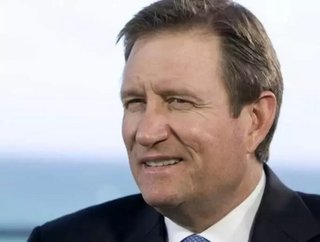Conflict Management Lessons From Goldcorp's Big Win in Chile

Big news in Chile for Canadian mining company Goldcorp this week: the Copiapó court of appeals in northern Chile has unanimously voted to toss out an injunction filed in 2012 by local indigenous groups fighting excavation at Goldcorp’s El Morro mining site. The rejection of this injunction by Copiapó’s appeals court means that Goldcorp can resume construction at El Morro, a gold-copper mining project in which Goldcorp has a 70 percent stake (as part of a $3.9 billion 70-30 joint venture with mining company New Gold).
In its green light to proceed, Goldcorp have triumphed. But in terms of effective conflict resolution, did Goldcorp follow the best possible path? What can other mining companies learn about conflict resolution from Goldcorp’s win?
1. Could Collaboration Have Helped?
It’s easier to ask for forgiveness than for permission – but is it always the most productive way to go about things? Goldcorp’s El Morro project has been at a standstill since 2012, when Northern Chile’s indigenous Diaguita group first began filing injunctions under the claim that a.) Goldcorp did not do the required consultation necessary to gain its mining license for the land in question, and b.) the El Morro project could possibly pollute a nearby river. That’s nearly two years that were not filled with construction and excavation, where Goldcorp and joint venture partner New Gold were potentially losing revenue.
In the world of conflict management, there are five widely recognized styles: accommodating, avoiding, collaborating, compromising, and conflicting. According to experts, the main drawback of the conflict management tactic known as “collaboration” is that it requires a time commitment that some opponents may not want to deal with – if collaboration had been employed effectively, perhaps the legal battle could have been avoided and mining would be well underway by now, saving Goldcorp valuable time while helping them develop a stronger and more favorable relationship with nearby residents.
2. You Don’t Always Need to Compromise
Of course, collaboration can only get you so far. According to reports, it was already ruled in October of 2013 (ahead of the Diaguita community’s latest injunction) that Goldcorp had sufficiently done its due diligence and done adequate consultation with the region’s residents. If this is accurate, it seems fair to question whether any further collaboration would have gotten Goldcorp any farther along in the process. At that point, you have to question whether it’s best to compromise – described as giving the opposition what they want, it can seem like a good idea in order to make troublesome problems and disputes go away. Experts agree that there is a time and a place for compromising, such as when you are trying to build good will with your opponent or when you have more to lose than they do. But in cases where you have been proven to be in the right, as a court had previously found Goldcorp to be, it can be in your company and shareholders’ best interests to move full-steam ahead.
3. Competing Can Work
The last of the conflict management styles, conflicting, can get a bad reputation for the fact that there will always be a clear winner and a clear loser once the dust has settled from a dispute handled in this way. It’s always a risk to choose the competing method, because there’s a chance that your side could end up the losing team – in this case, Goldcorp had a multibillion dollar project hanging in the balance, with the risk of having to shelve the project entirely.
But in the end, Goldcorp’s win has proved that taking a gamble on the competing method can pay off.
- Newmont Goldcorp announced as world's biggest gold minerAutomation & AI
- Newmont declares shareholder approval for $10bn Goldcorp takeoverAutomation & AI
- Goldcorp announces shareholder approval for combination with NewmontSupply Chain & Operations
- Glencore, Goldcorp and Yamana join forces to integrate Argentina minesSupply Chain & Operations






